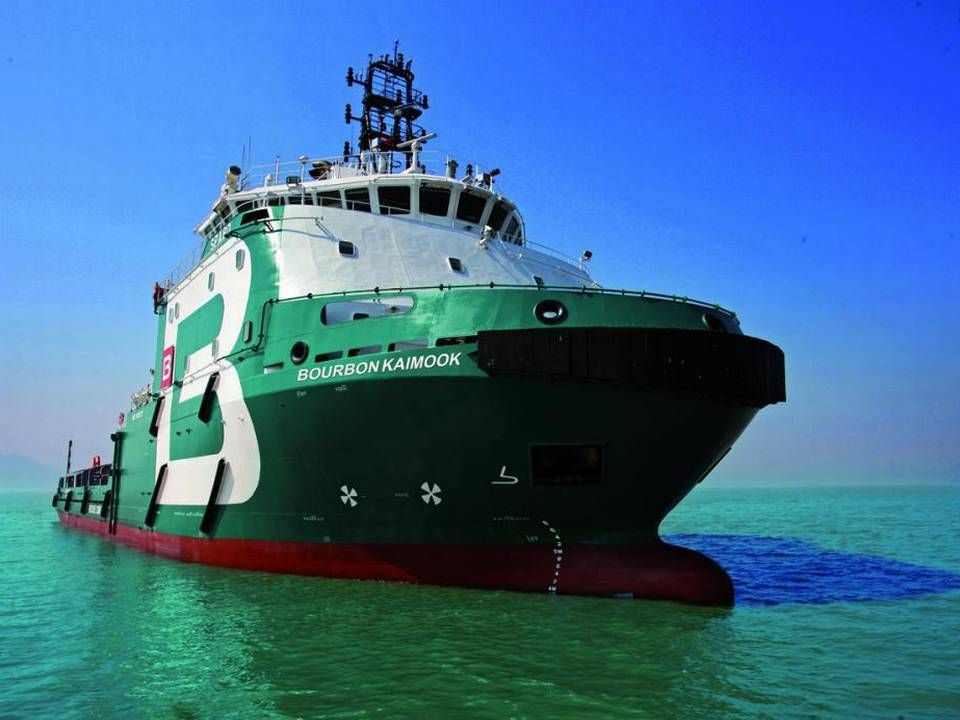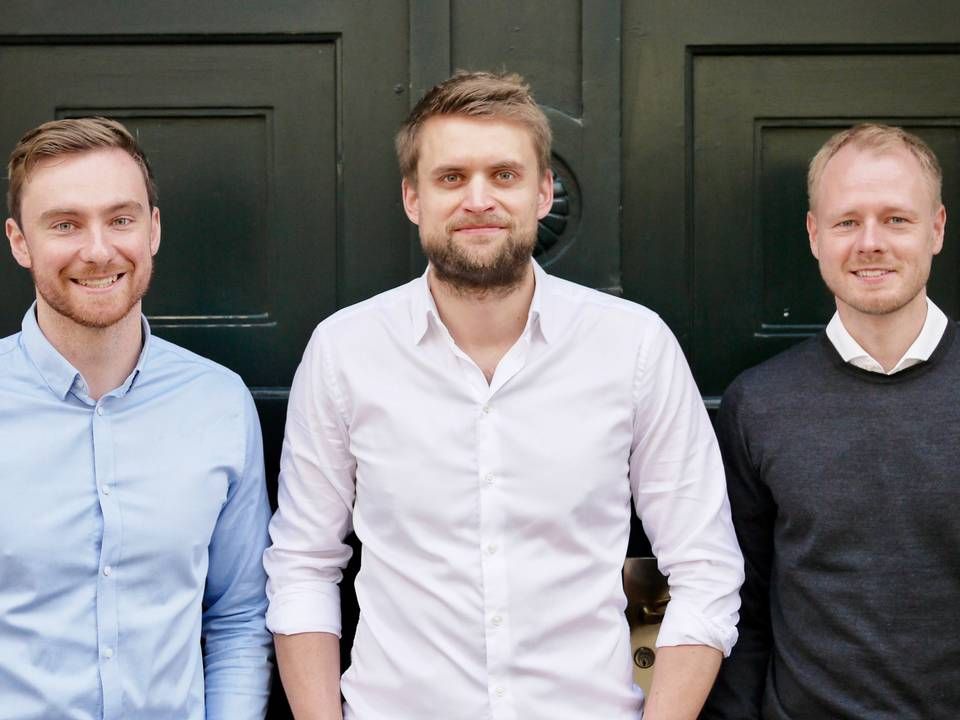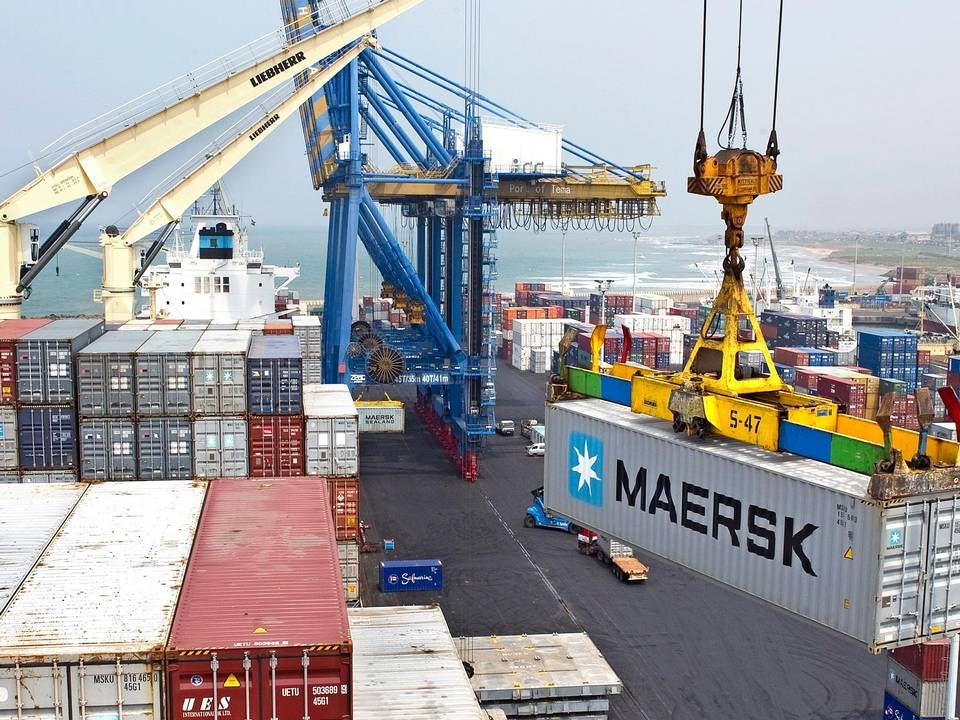Nicklas Fursund could represent the shipping man of 2030
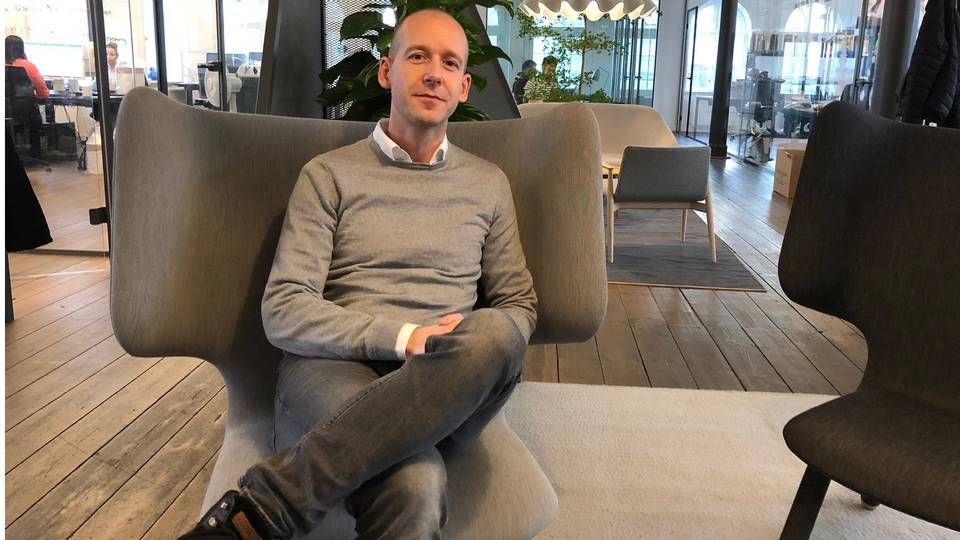
Everything was thought through. Yet it was with mixed feelings that Nicklas Viby Fursund sat across from his boss and longtime mentor.
As head of Maersk Line's operations in Northern Europe, he had spent weeks planning a management conference for 30 of the Danish carrier's executives. It had been a good day with a sailing event down the canals of Rotterdam in the fall sunshine followed by a visit to the office.
And now, here he was.
Withdrawn from the event and in surroundings that most resembled a movie from the 1950s with round tables and low lighting, on board an old cruise ship. It was at these round tables he was to have the final conversation, and after that, he knew there was no going back. When he left the table later that evening, he felt nostalgic as well as relieved.
It was a tough decision, says 39-year-old Fursund today when looking back on his resignation at Maersk Line. Three months later, everything in his apartment in Rotterdam was packed and he left the shipping industry after 13 years. He also left behind a career which likely could have led him further up the ranks at the prestigious company. But it was a final farewell.
Or so he thought.
Almost six years later on a 2017 November morning, Fursund shakes hands with a dark-haired man waiting in the café of an old maritime building in Copenhagen. With furniture from Danish designers Hay and FDB, there's not much maritime left about the place. The three floors above the café are full of 300 entrepreneurs, all dreaming of finding the next digital breakthrough with their startup. Maybe they've been supported by Rainmaking, which owns the startup collective, and has several offices around the world and does everything from "hackathons" to cooperations with large renowned companies such as IBM and Amazon.
Buzzwords like tech, innovation and blockchain are tossed around these rooms every day. Fursund himself hopes to create the same type of environment with a new project in Copenhagen on Langelinje Allé, which will open soon.
It is a positive experience to finally meet, they both agree. They spoke on the phone several times, and the Australian has now arrived in Denmark to visit companies in the Danish shipping cluster. He and some of his friends are building a new company and would like to discuss the idea with Fursund. Maybe they are working on similar ideas.
"I met with Peter Borup the other day," he says, while Fursund hangs up his coat.
Fursund is wearing black Nikes and gray pants. His white collar sticks out from under a light gray sweater, and his company car from Maersk has been replaced by a bicycle, which he uses every day to get from his home to his workplace.
"Yes, Peter. I know him very well," responds Fursund, speaking of the former head of dry cargo at Danish carrier J. Lauritzen.
After the meeting, they agree to speak again in a few weeks.
Big differences disappeared
Even though Fursund chose to leave the shipping industry over five years ago, a large part of his shipping network is left intact. A phone call from one of the world's largest port terminals outside of Europe was ultimately what would drive him back to the roots of his career.
While many other people his age were choosing what direction to take in their studies, Fursund went to live in Singapore at age 21, where he was stationed as part of a trainee program for Maersk. He met with high-priority customers, he made many mistakes, he learned from them and he improved. But when the global financial crisis knocked the world economy to its knees in 2008, the entrepreneurial spirit of the industry was replaced by a struggle to achieve economies of scale. Having the biggest ship was suddenly a huge power factor for staying ahead. Or even just staying afloat.
"From being an entrepreneurial industry, it became more about marginal improvements than big changes. It was about saving 3 percent a year by negotiating more toughly and pushing each other. There's nothing wrong with that, but it meant everything to me. The big differences disappeared and I didn't find it engaging. So I chose to leave in search for greater opportunities for change that could really move things," Fursund says today.
After resigning from Maersk, he traveled with his wife and 2-year-old daughter at the time to New York, where he worked for six months building his own tech company. He continued this work in Denmark when his visa expired.
It took around one year before he had to acknowledge it: He couldn't do it. He was trapped between two worlds. The old one and the new one, as Fursund refers to the difference between the shipping industry and his entrepreneur work.
"It was incredibly frustrating for me personally. And a big lesson. I hadn't imagined that I would learn so much. It was everything I had dreamed of, but I wasn't good at it. So you're sitting there and you've built something that doesn't really work and nobody really wants it, and I had spent money on it, even though I was doing it pretty light compared to others. I hadn't mortgaged my home or retirement."
So he shut it down and started over. With the same idea but a new approach. It took three months. Then he sold it. Even though he successfully built something, it had not satisfied his need to create a project that could make a difference for the business.
The phone call
In Denmark, Fursund had established himself in the meat packing district Kødbyen, which is known as a melting pot for creators and innovators. This is where his phone rang one day with a call from one of the world's largest port terminals. They needed help getting more land-based customers and creating cash flow beyond just carriers.
With virtually no time or money, Fursund and his partner built a tech solution which the customer ended up buying and using.
"Okay, the industry is waking up," thought Fursund:
"In the world I thought I was leaving, it was about building a huge monster in two years and a lot of money with no interest in this kind of thing," he says.
But even though Fursund did business with carriers, ports, governments and investors in the following period, he was not convinced that the industry was reinventing itself.
This conviction came in January 2017. At that time, Fursund had been in touch with the entrepreneur co-op Rainmaking. He was back in New York, where Rainmaking had for the first time held a hackathon for the transport sector. 120 hackers, ranging from business people to lawyers and programmers, had shown up. Some had even paid to solve problems for eight companies, including Maersk and Google.
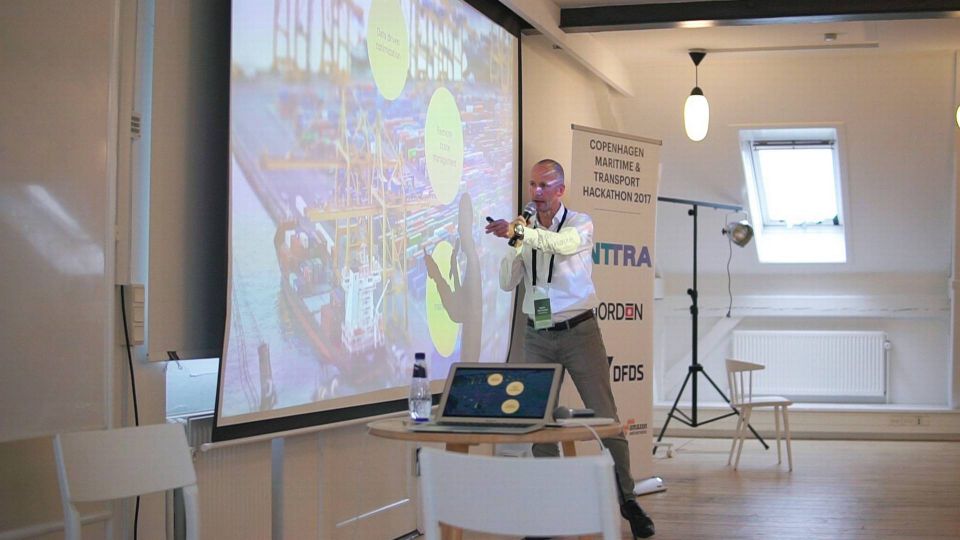
Friday night, the group went out to eat while the iconic yellow cabs of New York whizzed by the pizza parlor. After 48 hours, 12 prototypes were ready. Solutions to large-scale and costly challenges. One was a solution for how carriers can automatically plan the vessels' calls at ports, as there is a huge waste in this area today, explains Fursund.
When he left Sunday, he felt goosebumps.
"If this is possible, then the possibilities are endless," he thought.
This is where the industry came into contact with the entrepreneurial spirit that he had missed in his old job. From there, the choice was easy. Along with Rainmaking, he founded a new pillar of the cooperative focused on transport.
It is probably hard for many people in this industry to understand exactly what Fursund does. He tries to explain briefly:
"We work on connecting the old and the new world. In practice, we help established industry players by taking concrete steps to renew them and win in the future using innovation, digitalization and new business models."
Gathering ideas
"What a room", the woman exclaims when she steps into the building in late November 2017 on Langelinje Allé.
"Yes, there's water on three sides. We're opening one third together with ATP, and we can expand if there's interest," answers Fursund.
There is a scent of freshly cut wood and the open floor plan of the building allows you to look up to the sixth floor. ATP owns the building, where Rainmaking is opening its new entrepreneur firm for industries including transportation. And Maersk has acquired the first desk, while the Danish Maritime Fund has shown its support with a large million-kroner donation.
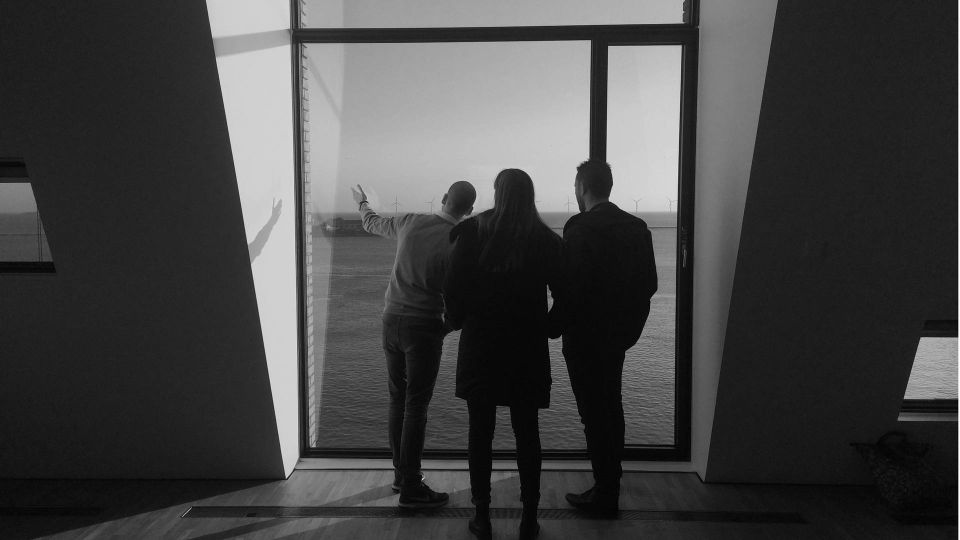
On that Friday in November 2017, Fursund showed the space off to three people from another potential partner. Together they take the elevator up to the sixth floor. A naval vessel is heading to sea with a pilot vessel on each side. Besides the view, the big room is empty.
"It's an amazing shell and more will come. Maybe not neon lights and palm trees, but something related to startups," says Fursund.
They laugh.
This month, the room opens for companies looking to incite innovation and share inspiration. Both within the industry and beyond. Whether the three visitors become part of the new environment remains unknown. But besides Maersk, five companies have so far signed contracts, says Fursund. This place is just one of several projects that he is working on for the transport industry.
"For me, this is the perfect place to be, where an old industry meets the new world, which contains many fantastic opportunities and the answer to the industry's problems. This cross field is ideal for me personally, and if a carrier or a port is to be a leader in the future, I think it must happen in this cross field."
English Edit: Gretchen Deverell Pedersen
Bourbon Offshore to digitalize its vessels
Danish start-up Portchain tackling one of container's biggest challenges

